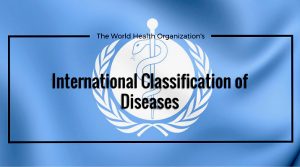Clinical informatics is the study of information technology and how it can be applied to the healthcare field. It includes the study and practice of an information-based approach to healthcare delivery in which data must be structured in a certain way to be effectively retrieved and used in a report or evaluation. Clinical informatics can be applied in a range of healthcare settings including hospitals, physician’s practices, the military, and other locations.
Clinical Informaticist Job Duties
Providers in today’s healthcare industry increasingly rely on data and technology to provide treatments for patients. Physicians, nurses, dentists, pharmacists, rehab therapists, assistants and a host of others collect and share data to formulate and implement a treatment plan for a patient. Along the way, they use the latest in technological equipment, computers, software, tablets, smartphones and even apps to gather and distribute information. All of this information must be collected, stored, interpreted, analyzed and implemented into a treatment plan.
A clinical informaticist may serve in a multitude of roles, depending on the size of the healthcare setting. Typically, these professionals evaluate the existing information systems and recommend improvements to functionality. Clinical informaticists may study a data entry or visual image storage system or interact with those who need access to records. They may train staff on system use, build interfaces, troubleshoot software and hardware issues, and work across multiple departments to integrate the sharing of information. They document and report their findings and work to implement improvements. The ultimate goal is to manage the costs while improving patient outcomes.
Clinical Informatics Jobs Outlook
Though clinical informatics has been widespread in the healthcare industry since the 1970s, a stimulus bill passed by Congress in 2009 included a mandate that medical providers convert paper records to electronic data by 2014 to continue receiving Medicaid and Medicare payments.
The American Medical Informatics Association (AMIA) achieved one of its goals in 2011 when the American Board of Medical Specialties recognized clinical informatics as a subspecialty. The first board certifications were awarded late in 2013.
“This field is exploding,” Charles Friedman, director of the health informatics program at the University of Michigan-Ann Arbor, told U.S. News and World Report in 2014. “Access to health information on the Web is taking off at a meteoric pace. It’s creating enormous employment opportunities.”
Clinical Informatics Job Descriptions
In the growing field of clinical informatics, specialized roles are taking shape that focus on specific areas of healthcare, including positions in medical informatics, nursing informatics, pharmacy informatics, and nutrition informatics.
Medical Informatics
The U.S. National Library of Medicine defines medical informatics as the study of the design, development and adaptation of IT-based innovations in healthcare services delivery, management and planning. For example, when a patient goes for tests, medical informaticists ensure those results are quickly and securely accessible to doctors as part of the patient’s electronic health record (EHR). This technology can be applied to payment systems and transactions through government agencies and insurance companies.
Nursing Informatics
Doctors and patients discussing treatment options rely on data. The nursing informatics role, as defined by the American Nurses Association, serves to integrate data, information and knowledge to support the decision-making process of patients and their providers. A nurse in this position knows how to store and access medical information and how to keep the facility’s IT systems up to date.
Pharmacy Informatics
When it comes to prescribing and administering medications, electronic communication is rapidly replacing the pen-and-prescription pad ways of the past. In this emerging field, a pharmacy informaticist uses both medical and computer knowledge to improve the efficiency and accuracy of the medication process for the patient and the providers.
Nutritional Informatics
Food- and nutrition-related information may be an important part of a patient’s treatment plan. Nutrition informaticists assist in the storage, organization and retrieval of data that will help dieticians, doctors and patients make informed choices in this continually evolving area. A person in this role might be working with software that would create a checklist of considerations based on a diagnosis, medications, allergies and other values.
Clinical Informatics Salary information
The impact of the federal mandate regarding EHRs is still being felt as many medical providers and facilities respond. The demand for applicants with both medical and technological knowledge is growing. The U.S. Bureau of Labor Statistics classifies clinical informatics as health information technologists and medical registrars, and that field is projected to grow 16% from 2022 to 2023.
As of June 2024, the estimated total pay for a Clinical Informaticist is $137,430 per year, with an average salary of $104,690 per year, according to Glassdoor. However, it is important to note that geographical location, position requirements, the employer and other factors may affect those numbers, so research is necessary.
However, it is important to note that geographical location, job requirements, employer, education level, and other factors may affect those numbers, so prospective students should conduct independent research.
Prepare for a Role in Clinical Informatics
This field of study is most often pursued by healthcare professionals with a passion for technology. For example, nurses often transition into informatics through graduate-level informatics programs, which teach students how to build medical applications (EHRs), how to abide by patient privacy laws, and how to better understand healthcare policy and economics.
Clinical informaticists typically start with at least a bachelor’s degree though employers may prefer candidates with a master’s degree in health informatics, healthcare management, quality management, or a related field. A graduate degree combined with training in systems that digitize medical records can help give professionals the knowledge and skills to prepare for a role in this field.
National long-term projections may not reflect local and/or short-term economic or job conditions, and do not guarantee actual job growth. Information provided is not intended to represent a complete list of hiring companies or job titles, and program options do not guarantee career or salary outcomes. Students should conduct independent research for specific employment information.




